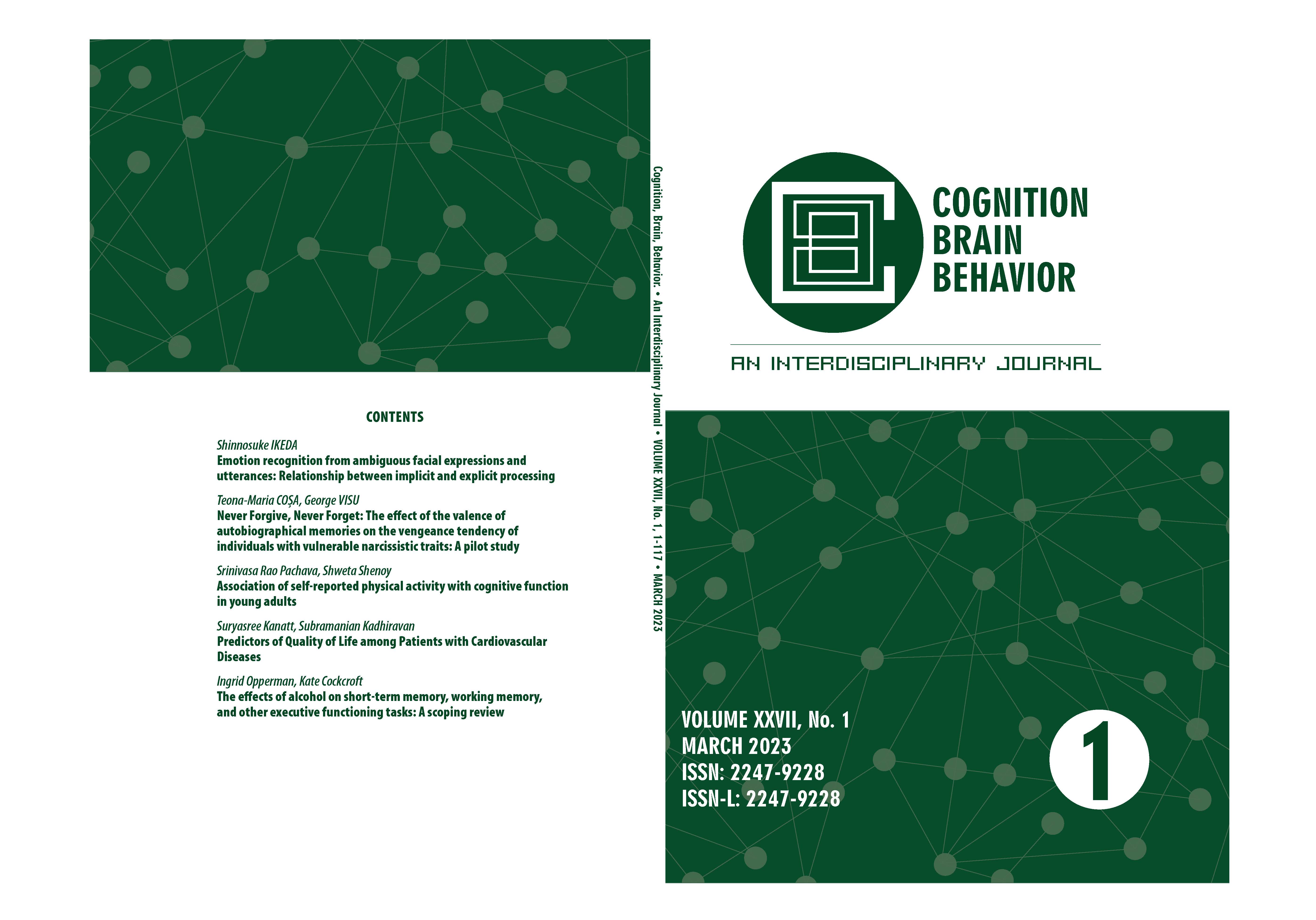The effects of alcohol on short-term memory, working memory, and other executive functioning tasks: A scoping review
The effects of alcohol on short-term memory, working memory, and other executive functioning tasks: A scoping review
Author(s): Ingrid Opperman, Kate CockcroftSubject(s): Neuropsychology, Methodology and research technology, Substance abuse and addiction, Health and medicine and law
Published by: Editura Asociației de Științe Cognitive din România (ASCR)
Keywords: short-term memory; working memory; executive functions; alcohol; review;
Summary/Abstract: Short-term memory, working memory, and other executive functions are related to short-term recall (short-term memory), information manipulation (working memory), and complex cognitive processing. Common tasks include serial recall, manipulation with recall (e.g., n-back), inhibitory control (e.g., Go/No-go), and planning (e.g., Tower of London). Acute alcohol consumption can result in poorer recall, altered spatial recognition, changes in attentional allocation, and reduced planning, task-switching, and cognitive flexibility. However, it is possible that the type of task used may result in equivocal outcomes. The purpose of this scoping review is to describe the different tasks used in the study of the effect of alcohol on short-term memory, working memory, and other executive functioning tasks. Nineteen studies were included with between-group, within-group repeated measures, and mixed factorial designs with various alcohol dosages. Findings of the included studies suggested that the impact of acute alcohol consumption on short-term memory, working memory, and other executive functioning tasks is equivocal. Discrepancies existed between visuospatial and verbal tasks and between array versus sequential recall tasks. Cognitive load may not be significantly affected but could be important in complex sequencing tasks. Deliberation times and response inhibition appear to be negatively affected, possibly due to thinking time rather than reduced performance. This suggests that most studies have not separated short-term memory, working memory, and other executive functions. These modalities may be differently affected by alcohol consumption. In general, further research using consistent, specific methods is required to enhance comparability of studies and clearly demarcate the effects of alcohol on these processes.
Journal: Cognition, Brain, Behavior. An Interdisciplinary Journal
- Issue Year: XXVII/2023
- Issue No: 1
- Page Range: 89-117
- Page Count: 30
- Language: English
- Content File-PDF

